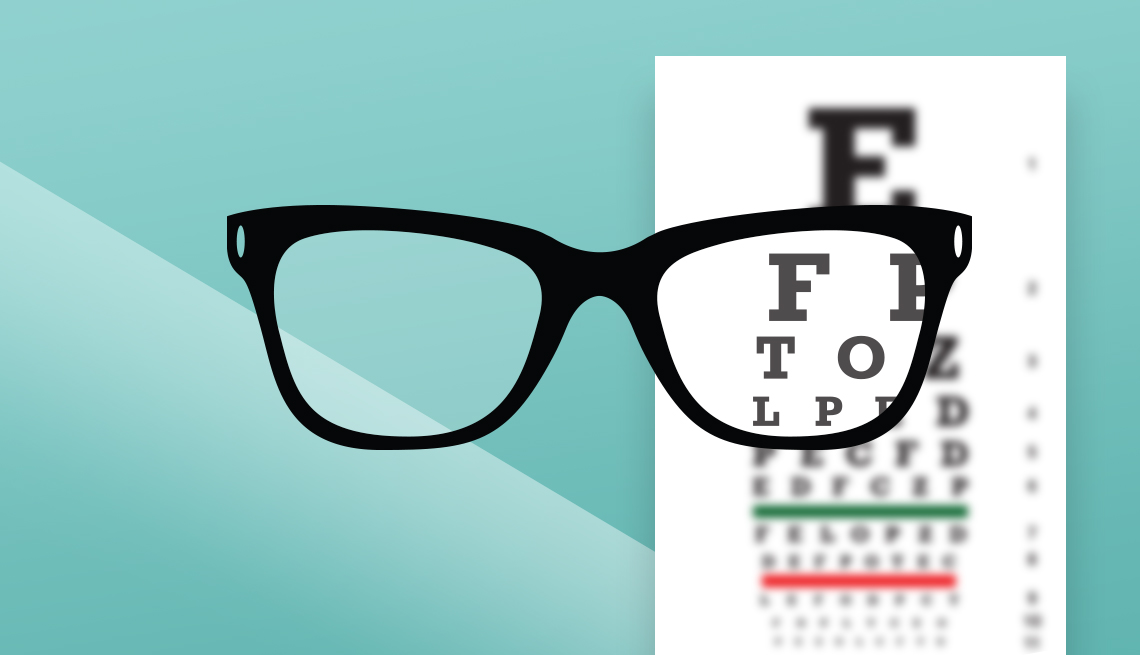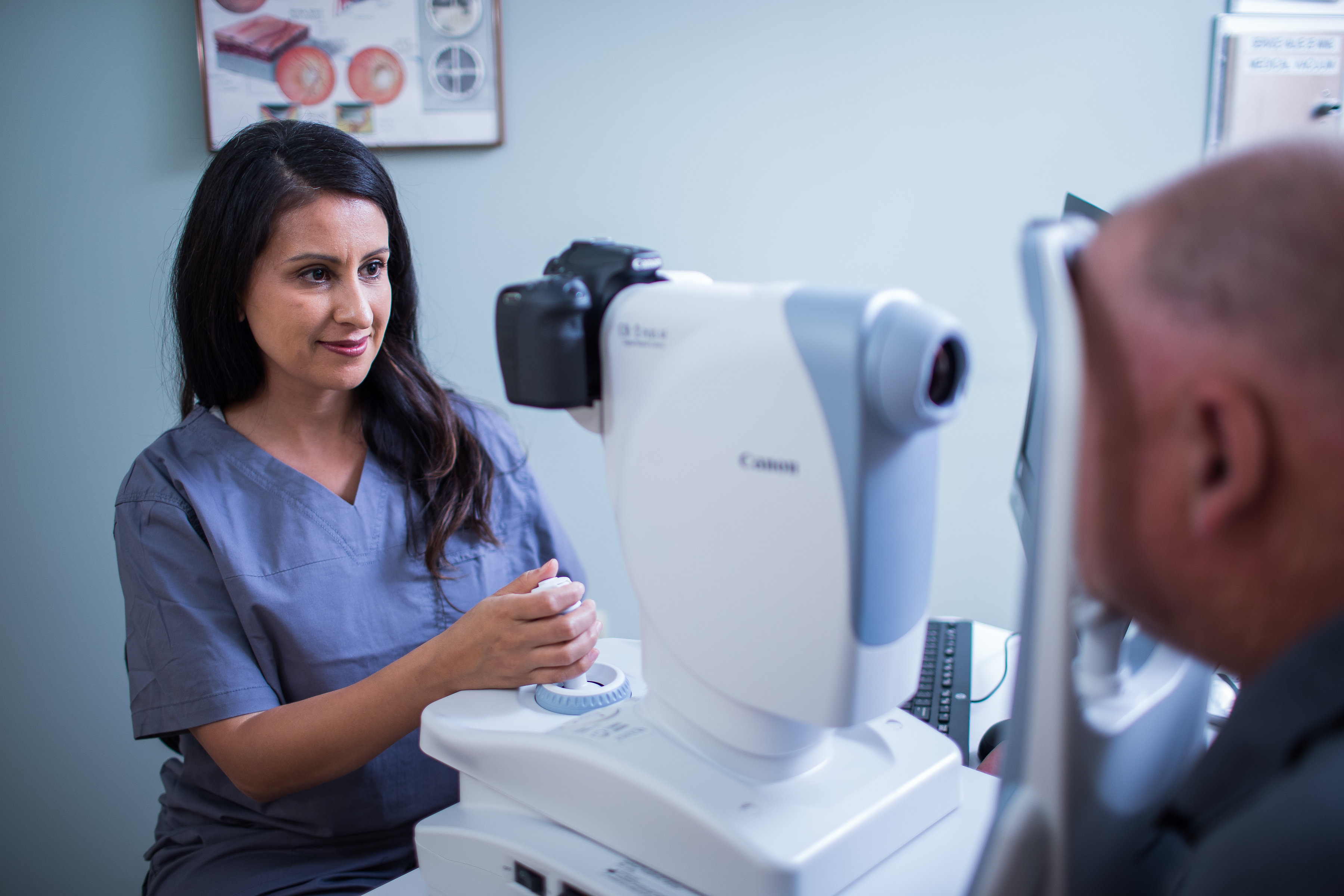Andalusia Eye Center: Innovating Vision Care for Community Health
Andalusia Eye Center: Innovating Vision Care for Community Health
Blog Article
Is Refractive Surgical Procedure Right for You? Factors to Think About for Better Eyecare
In the world of eye care, the choice to undertake refractive surgery is a significant one that demands thoughtful consideration. As people seek clearness and flexibility from the restraints of rehabilitative lenses, numerous aspects come into play when identifying the suitability of such a procedure. From the details of one's ocular health and wellness to the ins and outs of personal expectations and everyday practices, each aspect holds importance in the wider landscape of refractive surgery candidateship. By reviewing these key aspects with care and precision, a more clear course in the direction of educated decision-making arises.
Eye Health Evaluation
When considering refractive surgery, a thorough eye wellness examination is vital to assess the suitability of the treatment for every individual. andalusia pediatrics. This assessment involves a collection of evaluations and examinations carried out by an eye care specialist to establish the total health and wellness of the eyes, the presence of any kind of underlying problems, and the security of the refractive error
During the evaluation, numerous aspects are taken into consideration, such as the individual's case history, present eye prescription, corneal thickness, student dimension, and tear film top quality. These assessments assist to recognize any kind of contraindications to refractive surgical procedure, such as corneal irregularities, cataracts, or without treatment eye infections. In addition, the assessment aids to manage person expectations pertaining to the prospective end results of the surgical treatment based upon their unique eye attributes.
Inevitably, the eye health examination is crucial in ensuring the security and efficiency of refractive surgical procedure, as it gives valuable understandings right into the person's eye wellness standing and aids determine the most ideal treatment options for attaining ideal visual results. (cardiologist andalusia)
Lifestyle Assessment
An extensive way of life analysis is essential in establishing the suitability of refractive surgery for an individual's aesthetic improvement demands. Way of living factors such as profession, pastimes, and everyday activities play an important function in the decision-making process relating to refractive surgical treatment. For instance, individuals with careers that entail a high level of physical activity or exposure to environmental elements might have various visual requirements contrasted to those with inactive desk jobs. Recognizing exactly how a person's way of living may impact their vision post-surgery is crucial for handling assumptions and making certain optimal outcomes.
Moreover, way of living habits such as sporting activities engagement, outside activities, or even skincare routines can influence the healing procedure and total success of refractive surgical procedure. By performing a thorough way of living assessment, eye care specialists can customize their suggestions and treatment plans to fulfill the special demands of each person, inevitably leading to enhanced visual end results and satisfaction.
Expectation Placement

Patients require to comprehend that while several individuals attain 20/20 vision or better adhering to refractive surgical treatment, some might still call for glasses for specific tasks like reading or driving at evening. Managing these assumptions helps stop disappointment and dissatisfaction post-surgery, leading to a much more favorable general experience for the individual.
Threat Analysis

Aspects that may boost the risk of issues consist of age, certain clinical conditions like autoimmune illness, unpredictable vision prescription, slim corneas, and unrealistic person expectations. Furthermore, picking a skilled and skilled surgeon, following pre and post-operative treatment guidelines vigilantly, and revealing any kind of relevant medical history can assist mitigate threats.
To decrease the possibility of issues, eye doctors perform comprehensive pre-operative examinations to recognize any kind of contraindications to surgical treatment. They also go over the possible risks and benefits with patients during the appointment process. By participating in open interaction and shared decision-making, both the client and the eye doctor can function with each other to establish if refractive surgery is the best choice based on individual risk profiles and desired end results.
Consultation Relevance
Thinking about the vital function of notified decision-making in evaluating risks and potential complications in refractive surgical procedure, the appointment process holds considerable significance in guiding patients in the direction of optimum results. During the consultation, the ophthalmologist assesses the patient's eye wellness, refractive mistakes, and general suitability for surgical procedure. This first evaluation is vital in figuring out the most ideal treatment for each person, considering elements such as corneal thickness, student dimension, and existing eye problems.
Additionally, the assessment functions as a chance for patients wikipedia reference to review their expectations, problems, and any type of inquiries they may have pertaining to the surgical treatment. Clear interaction between the patient and the specialist is essential to make sure reasonable assumptions and an extensive understanding of the potential dangers and advantages involved.
Additionally, the assessment permits the surgeon to describe the different surgical alternatives available, their particular end results, and the post-operative care called for. This extensive conversation encourages clients to make knowledgeable choices about their eye care, bring about much better satisfaction and results post-surgery.
Verdict
Finally, individuals thinking about refractive surgical procedure should undergo a detailed eye wellness assessment, examine their way of living habits, align their expectations with prospective results, examine the affiliated dangers, and focus on appointments with eye treatment specialists. These factors play an essential function in figuring out the viability of refractive surgical treatment for each person, ensuring optimal outcomes and complete satisfaction with the procedure.
People considering refractive surgical treatment usually have click for more high assumptions pertaining to the end results, anticipating best vision without the requirement for glasses or get in touch with lenses. While refractive surgery can substantially improve vision and reduce dependence on aesthetic aids, it is essential for clients to understand that outcomes may vary based on specific aspects such as the degree of refractive error, corneal density, and general eye health.
By involving in open interaction and shared decision-making, both the ophthalmologist and the client can work with each other to figure out if refractive surgery is the appropriate option based on individual threat profiles and wanted results.
Considering the critical duty of notified decision-making in assessing find out threats and prospective complications in refractive surgical treatment, the assessment process holds substantial relevance in guiding people towards ideal end results. During the appointment, the ophthalmologist reviews the client's eye wellness, refractive errors, and total suitability for surgical procedure.
Report this page